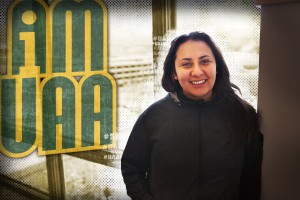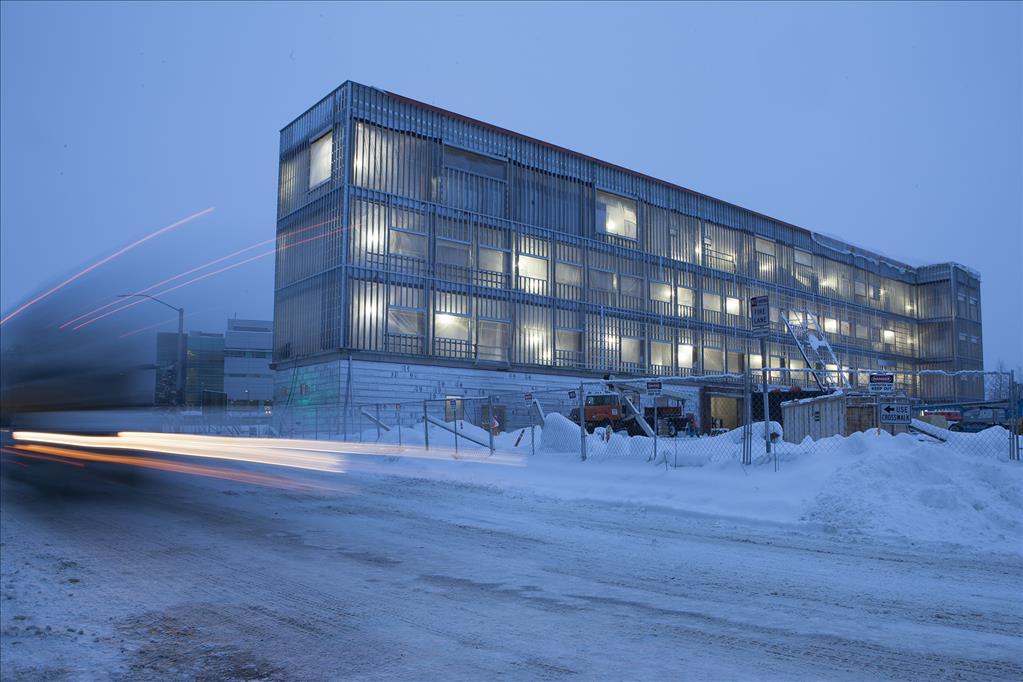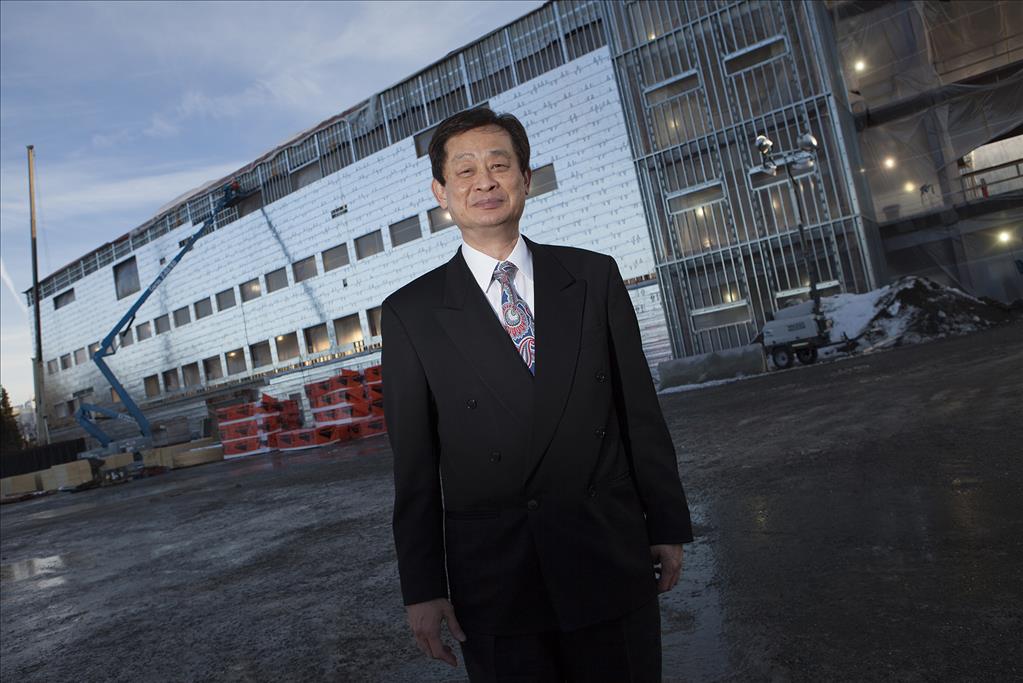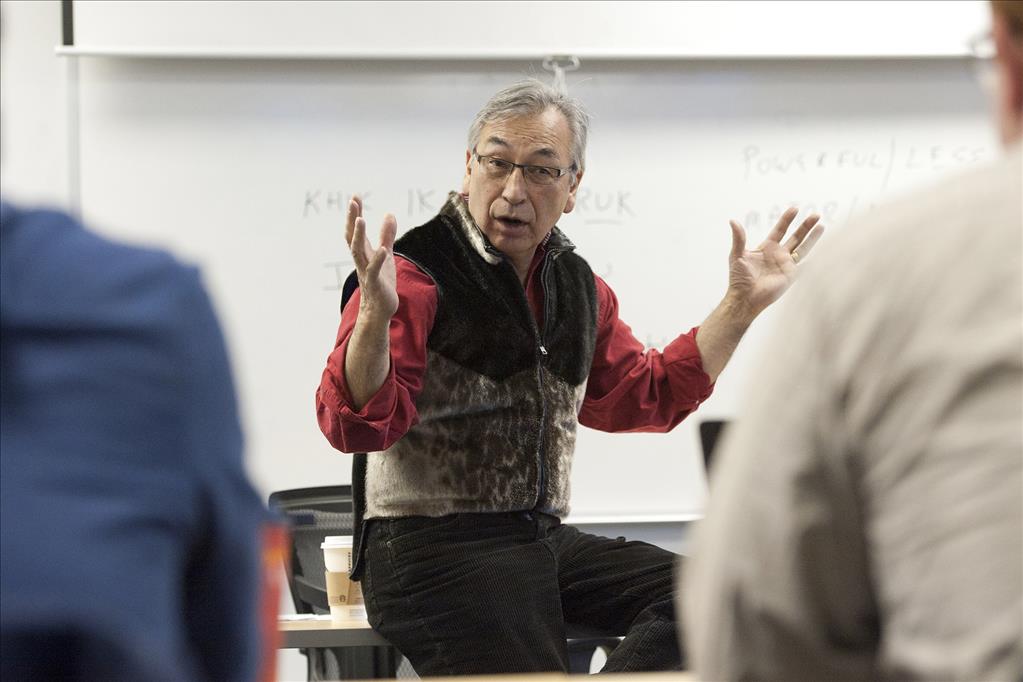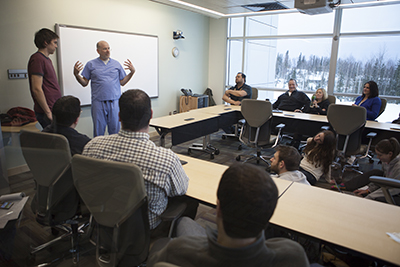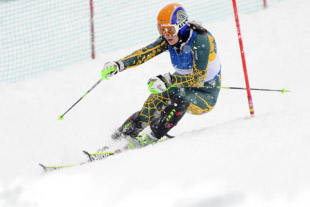Alumni Spotlight: Andrea Akerelrea, B.S. Nursing '08
by Kathleen McCoy |
Alumni Spotlight: Andrea Akerelrea, B.S. Nursing '08 Hometowns: Anchorage and Scammon Bay, Alaska Fun Fact: RRANN grad and nursing staff president at Alaska Native Medical Center
Andrea Akelerea's first choice for a college major was anthropology. That special quest came because of her background-she has a Yu'pik father originally from Scammon Bay and a Caucasian mother originally from Washington state.
"Being half, you're always trying to figure out where you fit in," she said.
Her active search to belong surfaced in high school. "Growing up, I can remember being embarrassed about being Native. I don't look Native, and I was always trying to find a place to fit in."
She joined East High's Elitnaurvik Within East (EWE), a program designed to help Alaska Native students feel more comfortable in a traditional high school setting.
"But I didn't fit in there," she said. Then, with a gentle laugh, "Of course, everyone else isn't fitting in either."
Still, she kept up her search. "I was a swimmer, so I hung out with the jocks for awhile. But then I heard them make some jokes about Natives, and that hurt."
She finally settled on SWS, School Within a School, at East. There, she found a cohort from very diverse backgrounds. "My core group of friends included a girl from the Philippines, twins girls who were Tlingit, a friend from Mexico. None of us had a home, so we didn't have a home-together."
They became fast friends and helped each other navigate high school.
Andrea headed off to college at Northern Arizona University on a swimming scholarship, still in pursuit of a degree in anthropology. But then, life happened.
She was terribly homesick, and when she returned to Anchorage after a little less than a semester, she found herself at loose ends. Was anthropology really the right choice? She'd met the famed Alaska anthropologist Ann Fienup-Riordan, who'd worked extensively with Andrea's Yu'pik family; her work was so notable that Andrea began to wonder how she, Andrea, could add to this impressive body of knowledge with a bachelor's degree.
Besides, now she had a little son and the need to establish herself financially. She had a cousin who'd chosen nursing and seemed really happy with the decision. Andrea decided on UAA's nursing program and set about getting her prerequisites.
About this time, she connected with RRANN, a group for students who are Alaska Native or American Indian and enrolled in the School of Nursing. RRANN means Recruitment and Retention of Alaska Natives into Nursing. For Andrea, it became the same stabilizing force field she developed with SWS at East High. It became the anchor that guided her through the challenges of declaring her major, navigating classes, adding work experience and later, finding jobs.
Everyone knows nursing academics has a demanding curriculum; the profession is also very challenging, and continually changing. So Andrea wasn't surprised when at a nursing program orientation, the speaker in front of the room issued a few cautions for prospective nursing students. As Andrea quoted:
"Hello and welcome to the nursing program. If you plan to work, quit. If you plan to have kids, quit. If you plan to marry, don't do it."
Whoops! Andrea was already married, the mother of two children and working a job. Yet, she says she remained undeterred by that advice because she knew she'd found what she really wanted to do. Instead, she put her head down and plowed on with fierce determination.
That's an attitude she hopes to share with up-and-coming nurses: "I want to tell people you can do anything as long as you want it badly enough."
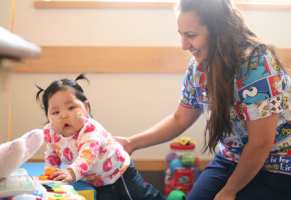
UAA nursing graduate Andrea Akerelrea, at work on the pediatrics unit at Alaska Native Medical Center. (Photo courtesy of ANMC)
And Andrea did! She graduated from nursing in August of 2008 while pregnant with her third child. She rested while she studied for her boards, but as soon as she passed them in October, she was ready to step into a full time position as a pediatrics nurse at the Alaska Native Medical Center (ANMC).
That transition to the work world is worth highlighting, especially the ease with which Andrea made the move.
Back when she was shifting away from anthropology and looking for another good professional fit, she purposefully took a non-nursing job at ANMC to get an idea of what nursing there would be like. It helped her know for sure this was the right career choice. She recommends the approach to other potential medical workers.
"For people looking at becoming nurses, any hospital you are interested in working at, get a job there in nursing support," she said. "This let's you get an idea of the culture of nursing there."
And when she found a situation that really suited, she wasn't quiet about it. "I kept a real open communication," she said. "'I let them know, I like it here!'"
As she wraps up her first five years as a pediatrics nurse, Andrea's habit of pursuing the best situation where she can both fit in and make a strong contribution is once again being tapped. Last summer she decided to run for president of ANMC's nursing association, and won.
This new role is an opportunity to actively participate in the hospital's value of shared governance, the belief that the bedside nurse can and should suggest important improvements in patient care. It is also an opportunity for Andrea to work on professional development opportunities for Licensed Vocational Nurses and Certified Nursing Assistants.
"I want to see these roles developed, so it encourages the progression of education," she said. "I've always wanted to make ANMC a really great place to work."
You might think that Andrea has crossed all the tough bridges, having settled happily into pediatric nursing and contributing to ANMC's value of shared governance. But you'd be wrong. She sees another fork ahead.
This time, the choice is which higher degree in nursing to pursue. A master's might lead to a mid-level role as a nurse practitioner or clinical nurse specialist. A doctorate would lead to research, a topic Andrea is deeply passionate about.
"I love research," she said. "To me, it says, 'This is why we do something. Not because we've always done it that way, but because we have evidence. It gives me the answers."
Not surprisingly, Andrea is doing her homework to figure out where she can make the biggest contribution.
 "Alumni Spotlight: Andrea Akerelrea, B.S. Nursing '08" is licensed under a Creative Commons Attribution-NonCommercial 4.0 International License.
"Alumni Spotlight: Andrea Akerelrea, B.S. Nursing '08" is licensed under a Creative Commons Attribution-NonCommercial 4.0 International License.










